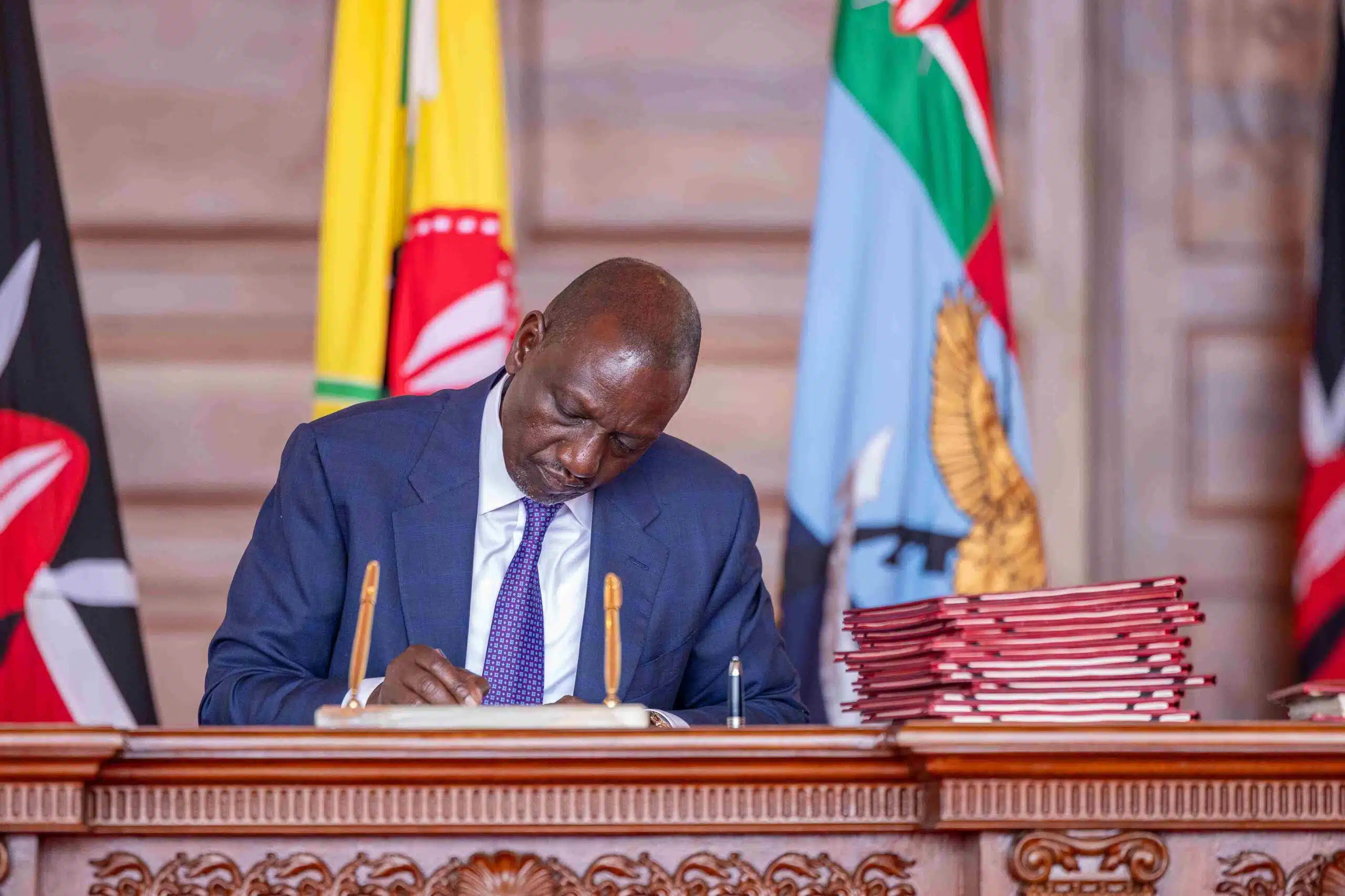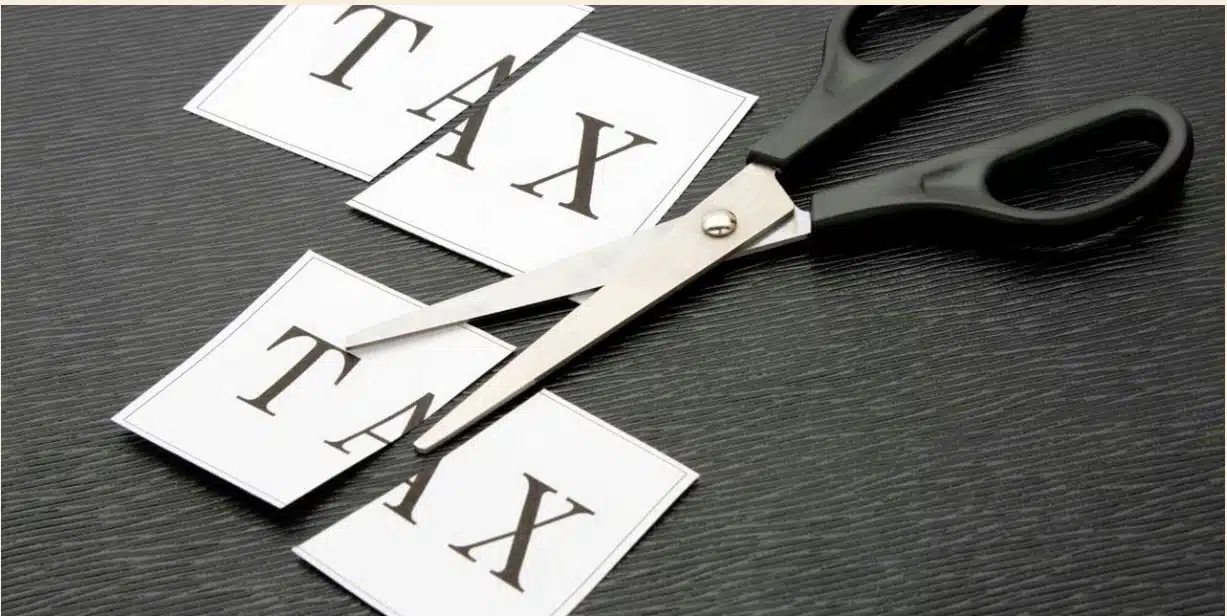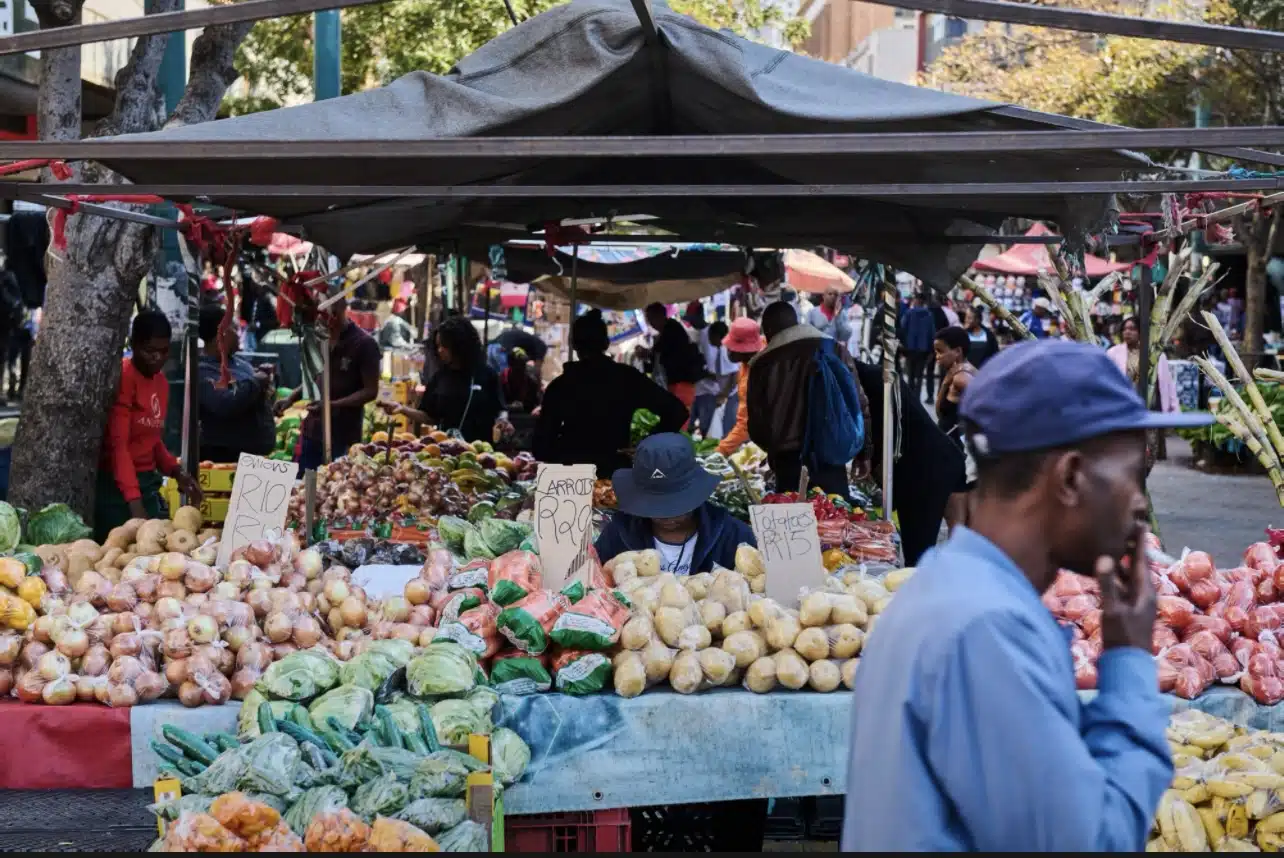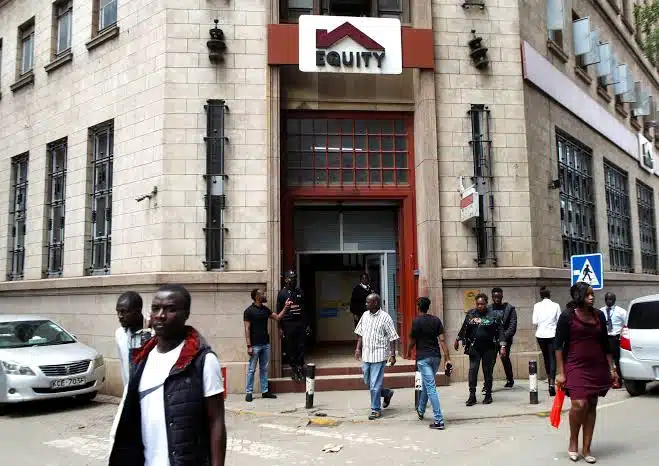Kenya’s President William Ruto on Thursday signed into law three key fiscal bills, including the Finance Bill 2025, the Appropriation Bill 2025, and the Supplementary Appropriation (No. 3) Bill 2025.
The new laws unlock $14.5 billion for the 2025/26 budget and introduce sweeping tax reliefs to ease living costs and attract investment.
The signing comes exactly one year after the 2024 Finance Bill sparked nationwide protests that turned deadly.
On Wednesday, Kenyans returned to the streets to commemorate the victims of last year’s protests and express continued frustration over high living costs.
This year’s demonstrations, although rooted in remembrance, also turned violent. Multiple deaths and gunshot injuries have been reported following confrontations with law enforcement agencies.
Financial services were also disrupted in parts of the country, with Co-operative Bank Kenya – a Tier 1 lender— confirming minimal cash losses, vandalism at two of its branches and a temporary suspension of operations at those locations.
“Repairs would commence immediately,” the lender assured in a statement published on its social media X account on Thursday, adding that no staff were injured.
In the new finance bill, lawmakers dropped several controversial proposals included in last year’s version—such as the 16% VAT on bread, excise duties on cooking oil and motor vehicles, and the mobile money transaction taxes among others.
Tax reliefs dominate Kenya’s new finance bill
The newly signed Finance Act introduces reforms across six key tax statutes, including the Income Tax Act, VAT Act, and Excise Duty Act. The measures aim to broaden the tax base while offering automatic reliefs and incentives to both workers and investors.
Employers are now required to apply all relevant tax deductions and exemptions automatically to employees’ payslips.
Pension-related gratuities will be tax-exempt, and the capital gains tax rate has been lowered from 15% to 5% for investments approved by the Nairobi International Financial Centre Authority.
To support innovation and the digital economy, the government has repealed the Digital Assets Tax (DAT) and replaced it with a 5% excise duty on transaction fees paid to virtual asset providers.
The DAT, introduced under the Finance Act 2023, imposed a 3% levy on the value of every digital asset transaction, with the amount remitted to the Kenya Revenue Authority.
The new rule also includes a 10% excise tax on service fees charged by digital platforms and a 5% levy on deposits into betting wallets.
Furthermore, the Act introduces VAT exemptions for mosquito repellents, locally used packaging for tea and coffee, and machinery used in domestic production.
However, small-scale distillers have been exempted from expensive automation requirements to support local manufacturing.
$14.5bn budget significantly less than 2024 spending plan
With the signing of the Appropriation Bill 2025, the National Treasury has been authorised to withdraw $14.5 billion from the Consolidated Fund for the 2025/26 fiscal year, which begins July 1.
An additional $5.2 billion in internally generated revenues will be made available to ministries, departments, and agencies.
This year’s budget represents less than half the previous year’s $30 billion spending plan, signaling the government commitment to fiscal consolidation.
Of the total, $14 billion is earmarked for recurrent spending, including salaries and subsidies, while Sh744.5 billion has been allocated for development.
Education will receive $5.7 billion to support basic education, university scholarships, teacher recruitment, junior secondary schools, and school feeding programmes.
The health sector has been allocated $1 billion, while agriculture will receive $368.3 million
Industrial development will benefit from $139.2 million for agro-industrial parks, SEZ textile parks, and support to micro, small and medium sized businesses through Kenya Industrial Estates.
Infrastructure development is set to receive $1.7 billion for roads and bridges, $299 million for rail and air transport, and $485.77 million for electricity and clean energy.
The government also plans to invest $98.2 million in digital infrastructure and the creative economy.
The Supplementary Appropriation (No. 3) Bill, tabled last week, reflects a 0.5% reduction in ministerial spending compared to the original 2024/25 estimates — a change driven by emerging funding needs according to the government.
“Included in the Financial Year Supplementary Estimates No. III is additional expenditure to cater for salaries shortfall, security-related interventions, among other priorities,” Finance minister John Mbadi said.
Debt servicing cost hits $13.5bn, nearly matching entire budget
Even as the government rolls out its new spending plan, Kenya’s debt servicing burden continues to weigh heavily on public finances.
Parliament has approved a $2.3 billion reduction in the Consolidated Fund Services (CFS) allocation, bringing it from $17.7 billion down to $15.4 billion for the 2024/25 fiscal year.
Of that amount, $13.5 billion—nearly the size of the entire 2025/26 budget—will go to servicing public debt. The remainder includes $1.7 billion for pension payments, $31.5 million for salaries and allowances for constitutional offices, and $152.4 million for guaranteed loan payments and other expenditures.
The National Assembly’s Debt and Privatisation Committee, which made the recommendations, has directed the Treasury to publish a detailed debt management policy within 60 days.
The aim is to outline how Kenya will reduce its debt burden, create fiscal room, and manage liabilities more sustainably.
“The policy should articulate clear guidelines and measurable targets aimed at reducing the debt service burden and enhancing fiscal space,” said Njoki Mrembo, vice-chairperson of the committee.
With public debt reaching nearly $88 billion as of March 2025, lawmakers have warned that without a robust policy framework, Kenya risks being locked into a cycle of heavy repayments and limited investment.
The committee said better liability management would improve debt planning and reduce refinancing risks.
(The budget figures were originally reported in Kenya Shilling and have been converted using $129.3/$1 — the exchange rate as of June 26, 2025.)








